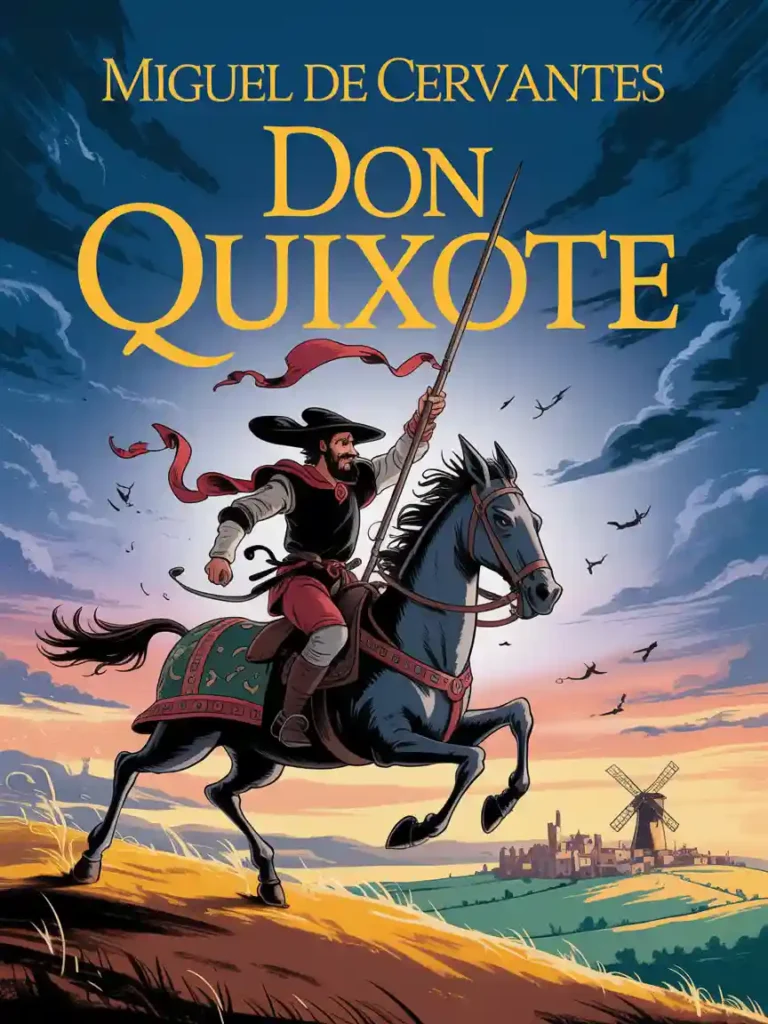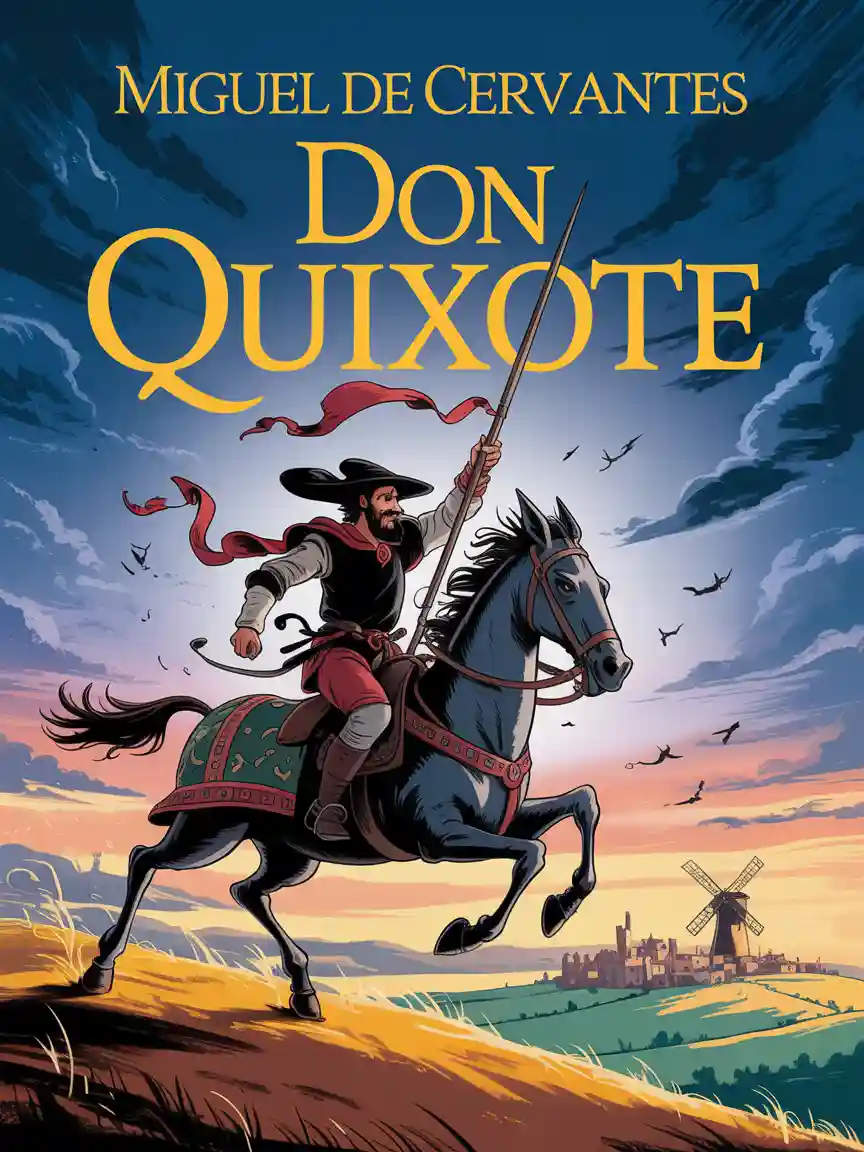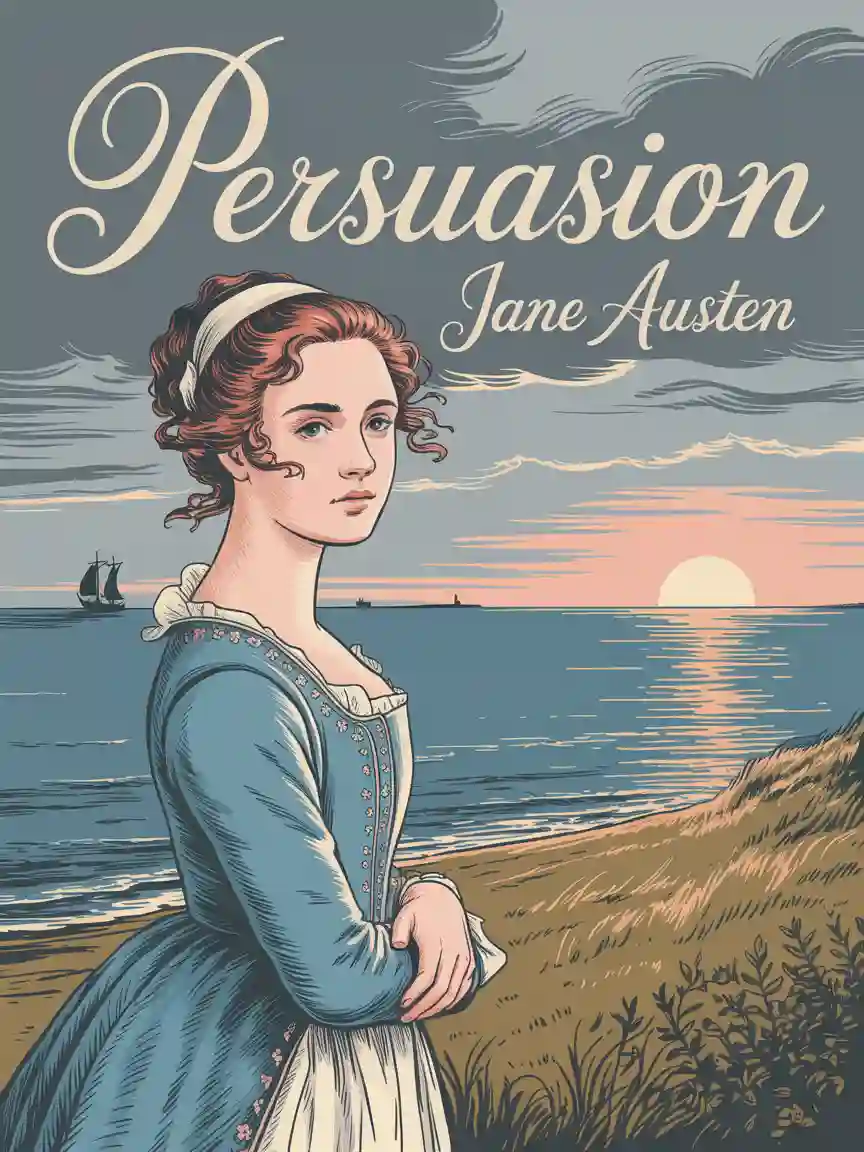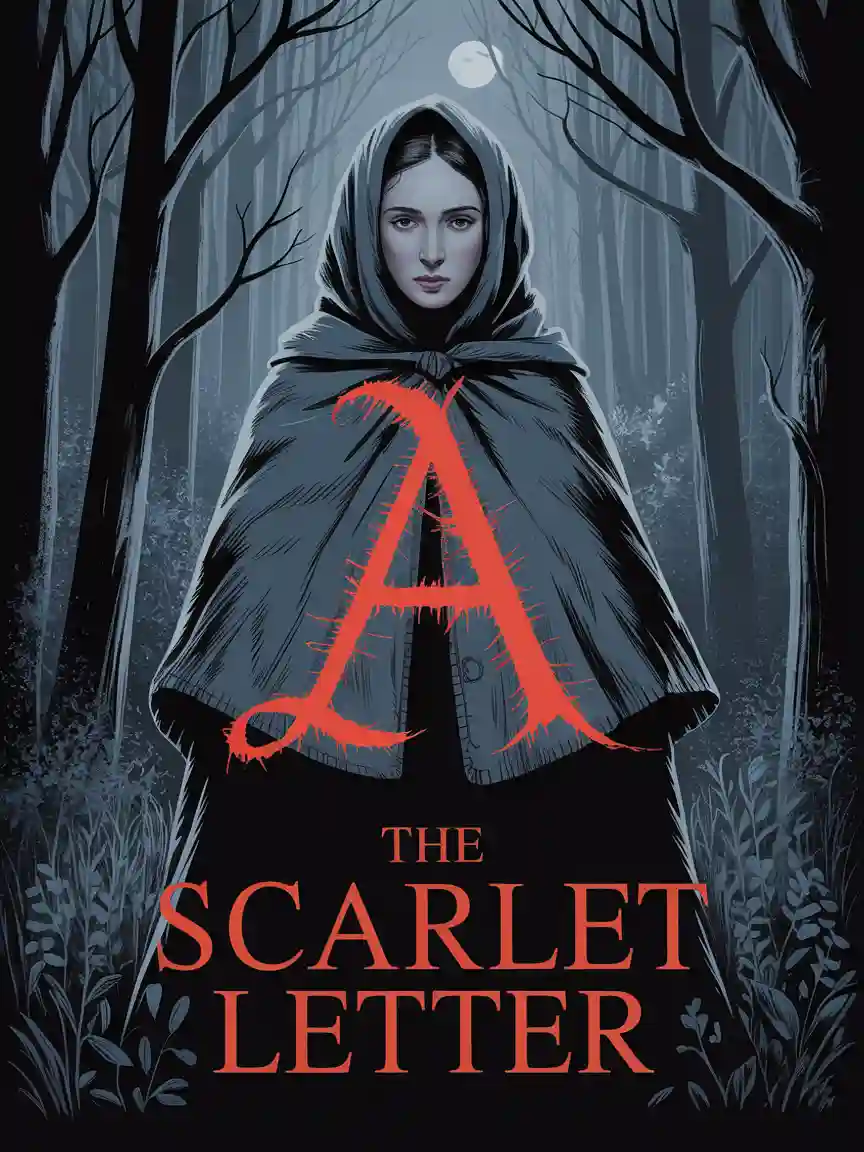CHAPTER 9
IN WHICH IS CONCLUDED AND FINISHED THE TERRIFIC BATTLE BETWEEN THE GAL-
LANT BISCAYAN AND THE VALIANT MANCHEGAN
In the First Part of this history we left the valiant Biscayan and the
renowned Don Quixote with drawn swords uplifted, ready to deliver two
such furious slashing blows that if they had fallen full and fair they would
at least have split and cleft them asunder from top to toe and laid them open
like a pomegranate; and at this so critical point the delightful history came
to a stop and stood cut short without any intimation from the author where
what was missing was to be found.
This distressed me greatly, because the pleasure derived from having read
such a small portion turned to vexation at the thought of the poor chance
that presented itself of finding the large part that, so it seemed to me, was
missing of such an interesting tale. It appeared to me to be a thing impossi-
ble and contrary to all precedent that so good a knight should have been
without some sage to undertake the task of writing his marvellous achieve-
ments; a thing that was never wanting to any of those knights-errant who,
they say, went after adventures; for every one of them had one or two sages
as if made on purpose, who not only recorded their deeds but described
their most trifling thoughts and follies, however secret they might be; and
such a good knight could not have been so unfortunate as not to have what
Platir and others like him had in abundance. And so I could not bring my-
self to believe that such a gallant tale had been left maimed and mutilated,
and I laid the blame on Time, the devourer and destroyer of all things, that
had either concealed or consumed it.
On the other hand, it struck me that, inasmuch as among his books there
had been found such modern ones as “The Enlightenment of Jealousy” and
the “Nymphs and Shepherds of Henares,” his story must likewise be mod-
ern, and that though it might not be written, it might exist in the memory of
the people of his village and of those in the neighbourhood. This reflection
kept me perplexed and longing to know really and truly the whole life and
wondrous deeds of our famous Spaniard, Don Quixote of La Mancha, light
and mirror of Manchegan chivalry, and the first that in our age and in these
so evil days devoted himself to the labour and exercise of the arms of
knight-errantry, righting wrongs, succouring widows, and protecting
damsels of that sort that used to ride about, whip in hand, on their palfreys,
with all their virginity about them, from mountain to mountain and valley to
valley—for, if it were not for some ruffian, or boor with a hood and hatchet,
or monstrous giant, that forced them, there were in days of yore damsels
that at the end of eighty years, in all which time they had never slept a day
under a roof, went to their graves as much maids as the mothers that bore
them. I say, then, that in these and other respects our gallant Don Quixote is
worthy of everlasting and notable praise, nor should it be withheld even
from me for the labour and pains spent in searching for the conclusion of
this delightful history; though I know well that if Heaven, chance and good
fortune had not helped me, the world would have remained deprived of an
entertainment and pleasure that for a couple of hours or so may well occupy
him who shall read it attentively. The discovery of it occurred in this way.
One day, as I was in the Alcana of Toledo, a boy came up to sell some
pamphlets and old papers to a silk mercer, and, as I am fond of reading even
the very scraps of paper in the streets, led by this natural bent of mine I took
up one of the pamphlets the boy had for sale, and saw that it was in charac-
ters which I recognised as Arabic, and as I was unable to read them though
I could recognise them, I looked about to see if there were any Spanish-
speaking Morisco at hand to read them for me; nor was there any great dif-
ficulty in finding such an interpreter, for even had I sought one for an older
and better language I should have found him. In short, chance provided me
with one, who when I told him what I wanted and put the book into his
hands, opened it in the middle and after reading a little in it began to laugh.
I asked him what he was laughing at, and he replied that it was at something
the book had written in the margin by way of a note. I bade him tell it to
me; and he still laughing said, “In the margin, as I told you, this is written:
‘This Dulcinea del Toboso so often mentioned in this history, had, they say,
the best hand of any woman in all La Mancha for salting pigs.'”
When I heard Dulcinea del Toboso named, I was struck with surprise and
amazement, for it occurred to me at once that these pamphlets contained the
history of Don Quixote. With this idea I pressed him to read the beginning,
and doing so, turning the Arabic offhand into Castilian, he told me it meant,
“History of Don Quixote of La Mancha, written by Cide Hamete Benengeli,
an Arab historian.” It required great caution to hide the joy I felt when the
title of the book reached my ears, and snatching it from the silk mercer, I
bought all the papers and pamphlets from the boy for half a real; and if he
had had his wits about him and had known how eager I was for them, he
might have safely calculated on making more than six reals by the bargain. I
withdrew at once with the Morisco into the cloister of the cathedral, and
begged him to turn all these pamphlets that related to Don Quixote into the
Castilian tongue, without omitting or adding anything to them, offering him
whatever payment he pleased. He was satisfied with two arrobas of raisins
and two bushels of wheat, and promised to translate them faithfully and
with all despatch; but to make the matter easier, and not to let such a pre-
cious find out of my hands, I took him to my house, where in little more
than a month and a half he translated the whole just as it is set down here.
In the first pamphlet the battle between Don Quixote and the Biscayan
was drawn to the very life, they planted in the same attitude as the history
describes, their swords raised, and the one protected by his buckler, the oth-
er by his cushion, and the Biscayan’s mule so true to nature that it could be
seen to be a hired one a bowshot off. The Biscayan had an inscription under
his feet which said, “Don Sancho de Azpeitia,” which no doubt must have
been his name; and at the feet of Rocinante was another that said, “Don
Quixote.” Rocinante was marvellously portrayed, so long and thin, so lank
and lean, with so much backbone and so far gone in consumption, that he
showed plainly with what judgment and propriety the name of Rocinante
had been bestowed upon him. Near him was Sancho Panza holding the hal-
ter of his ass, at whose feet was another label that said, “Sancho Zancas,”
and according to the picture, he must have had a big belly, a short body, and
long shanks, for which reason, no doubt, the names of Panza and Zancas
were given him, for by these two surnames the history several times calls
him. Some other trifling particulars might be mentioned, but they are all of
slight importance and have nothing to do with the true relation of the histo-
ry; and no history can be bad so long as it is true.
If against the present one any objection be raised on the score of its truth,
it can only be that its author was an Arab, as lying is a very common
propensity with those of that nation; though, as they are such enemies of
ours, it is conceivable that there were omissions rather than additions made
in the course of it. And this is my own opinion; for, where he could and
should give freedom to his pen in praise of so worthy a knight, he seems to
me deliberately to pass it over in silence; which is ill done and worse con-
trived, for it is the business and duty of historians to be exact, truthful, and
wholly free from passion, and neither interest nor fear, hatred nor love,
should make them swerve from the path of truth, whose mother is history,
rival of time, storehouse of deeds, witness for the past, example and counsel
for the present, and warning for the future. In this I know will be found all
that can be desired in the pleasantest, and if it be wanting in any good quali-
ty, I maintain it is the fault of its hound of an author and not the fault of the
subject. To be brief, its Second Part, according to the translation, began in
this way:
With trenchant swords upraised and poised on high, it seemed as though
the two valiant and wrathful combatants stood threatening heaven, and
earth, and hell, with such resolution and determination did they bear them-
selves. The fiery Biscayan was the first to strike a blow, which was deliv-
ered with such force and fury that had not the sword turned in its course,
that single stroke would have sufficed to put an end to the bitter struggle
and to all the adventures of our knight; but that good fortune which reserved
him for greater things, turned aside the sword of his adversary, so that al-
though it smote him upon the left shoulder, it did him no more harm than to
strip all that side of its armour, carrying away a great part of his helmet with
half of his ear, all which with fearful ruin fell to the ground, leaving him in
a sorry plight.
Good God! Who is there that could properly describe the rage that filled
the heart of our Manchegan when he saw himself dealt with in this fashion?
All that can be said is, it was such that he again raised himself in his stir-
rups, and, grasping his sword more firmly with both hands, he came down
on the Biscayan with such fury, smiting him full over the cushion and over
the head, that—even so good a shield proving useless—as if a mountain had
fallen on him, he began to bleed from nose, mouth, and ears, reeling as if
about to fall backwards from his mule, as no doubt he would have done had
he not flung his arms about its neck; at the same time, however, he slipped
his feet out of the stirrups and then unclasped his arms, and the mule, taking
fright at the terrible blow, made off across the plain, and with a few plunges
flung its master to the ground. Don Quixote stood looking on very calmly,
and, when he saw him fall, leaped from his horse and with great briskness
ran to him, and, presenting the point of his sword to his eyes, bade him sur-
render, or he would cut his head off. The Biscayan was so bewildered that
he was unable to answer a word, and it would have gone hard with him, so
blind was Don Quixote, had not the ladies in the coach, who had hitherto
been watching the combat in great terror, hastened to where he stood and
implored him with earnest entreaties to grant them the great grace and
favour of sparing their squire’s life; to which Don Quixote replied with
much gravity and dignity, “In truth, fair ladies, I am well content to do what
ye ask of me; but it must be on one condition and understanding, which is
that this knight promise me to go to the village of El Toboso, and on my be-
half present himself before the peerless lady Dulcinea, that she deal with
him as shall be most pleasing to her.”
The terrified and disconsolate ladies, without discussing Don Quixote’s
demand or asking who Dulcinea might be, promised that their squire should
do all that had been commanded.
“Then, on the faith of that promise,” said Don Quixote, “I shall do him no
further harm, though he well deserves it of me.”





